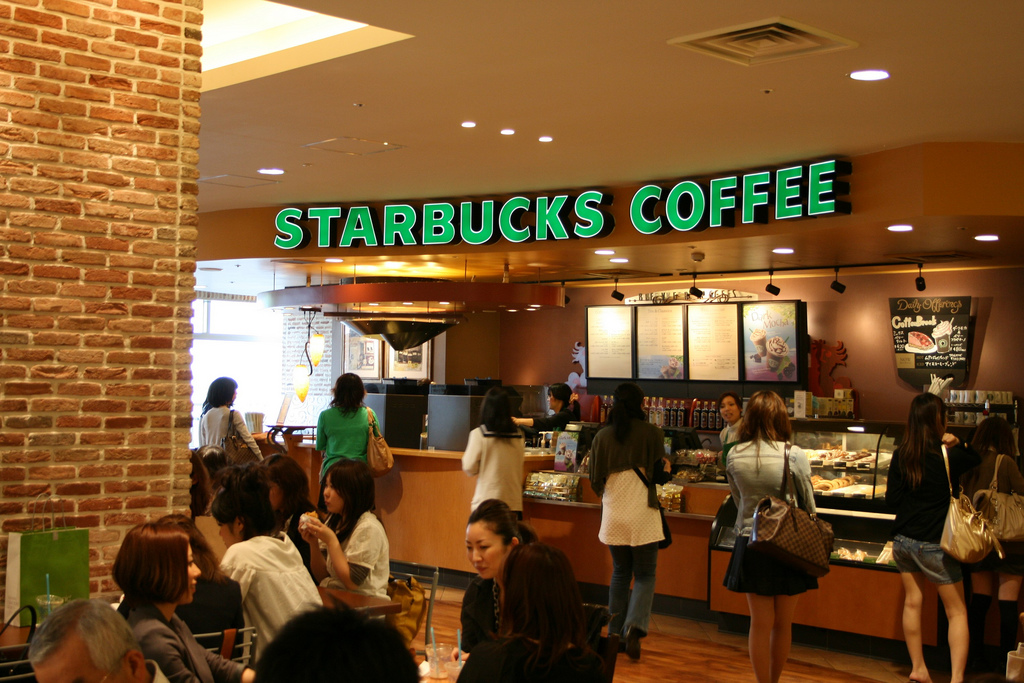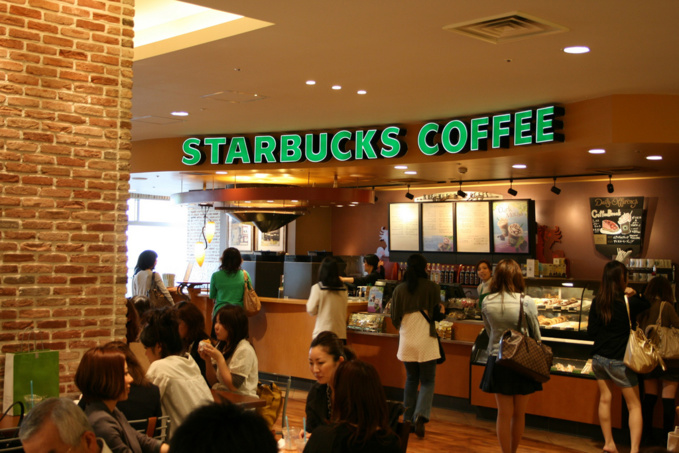Starbucks plans to open 20-30 giant and up to 1,000 smaller Starbucks Reserve restaurants, where rare coffees will be browned and brewed. Schultz says the company started pondering the plan three years ago. He adds that people now are visiting shopping malls less often as popularity of online shopping is growing. Starbucks is heavily dependent on shopping centers’ visitors, and so it decided to seduce customers from home with the luxury service. "We see that coffee in so-called independent coffee shops is much more expensive than ours, yet it is still in demand," - Schultz said in an interview.
Some experts believe the company's plan to create the luxury sub-brand is a good strategic decision, given increase in consumer interest in coffee of higher quality. They also pointed at financial difficulties of the middle class, which has already harmed demand for traditional Starbucks coffee. The US is largest market for the company, yet Starbucks there has not reached sales targets for four quarters in a row. It’s not a surprise that the coffee maker wants them to grow again at a historic level of 5%.
Erich Joachimstaler, CEO of Vivaldi consulting firm, compares the situation in the coffee business with difficulties of large brewing companies due to growing popularity of craft beer: "They have never been protected in the premium segment."
Not only wealthy, but also young customers may be ready to pay more for a more refined product. According to the National Coffee Association, in 2008-2016 proportion of 18-24-year-olds, who have purchased gourmet coffee a day before the poll, increased from 13% to 36%. For 25-39-year-olds, the share rose from 19% to 41%. Coffee Value Chain Consultant Andrew Hetzel says that demand for convenient coffee climbs 1-2% up per year worldwide, while interest to fine grades grows at a rate of 7-8% per year.
So far, the only evidence of effectiveness of new Starbucks’ concept is only Starbucks Reserve restaurant in Seattle, opened two years ago. Sales there rose by 24% over the last year, and average check is four times higher than in the traditional coffee houses of Starbucks.
Brooke de Boutray of investment company Zevenbergen Capital added that financiers are now wondering whether people are willing to buy coffee for $ 6.12. The same question, however, bothered minds of investors before Starbucks IPO in 1992 when prices in its coffee houses ranged from $ 0.65 to $ 2.85. "Then our customers from pension funds wondered: is there a sane person who would pay $ 2 for a cup of coffee?"
source: wsj.com
Some experts believe the company's plan to create the luxury sub-brand is a good strategic decision, given increase in consumer interest in coffee of higher quality. They also pointed at financial difficulties of the middle class, which has already harmed demand for traditional Starbucks coffee. The US is largest market for the company, yet Starbucks there has not reached sales targets for four quarters in a row. It’s not a surprise that the coffee maker wants them to grow again at a historic level of 5%.
Erich Joachimstaler, CEO of Vivaldi consulting firm, compares the situation in the coffee business with difficulties of large brewing companies due to growing popularity of craft beer: "They have never been protected in the premium segment."
Not only wealthy, but also young customers may be ready to pay more for a more refined product. According to the National Coffee Association, in 2008-2016 proportion of 18-24-year-olds, who have purchased gourmet coffee a day before the poll, increased from 13% to 36%. For 25-39-year-olds, the share rose from 19% to 41%. Coffee Value Chain Consultant Andrew Hetzel says that demand for convenient coffee climbs 1-2% up per year worldwide, while interest to fine grades grows at a rate of 7-8% per year.
So far, the only evidence of effectiveness of new Starbucks’ concept is only Starbucks Reserve restaurant in Seattle, opened two years ago. Sales there rose by 24% over the last year, and average check is four times higher than in the traditional coffee houses of Starbucks.
Brooke de Boutray of investment company Zevenbergen Capital added that financiers are now wondering whether people are willing to buy coffee for $ 6.12. The same question, however, bothered minds of investors before Starbucks IPO in 1992 when prices in its coffee houses ranged from $ 0.65 to $ 2.85. "Then our customers from pension funds wondered: is there a sane person who would pay $ 2 for a cup of coffee?"
source: wsj.com


















